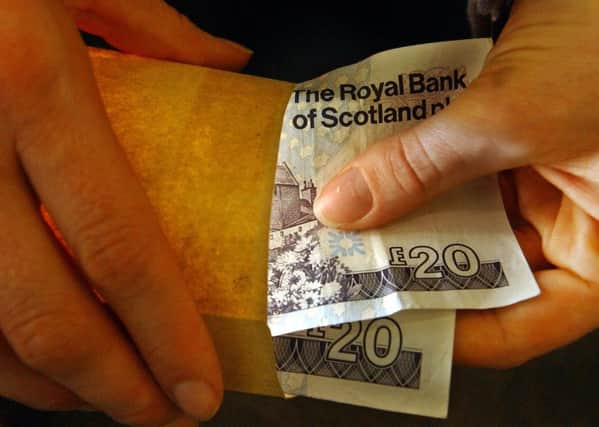Over £3 million seized from north of Scotland criminals


Just under 2.3 million pounds was recovered through proceeds of crime legislation in the Grampian and Highlands and Island sheriffdoms in 2013-14.
A further 1.4 million pounds was claimed under court orders in 2014-15.
Advertisement
Hide AdAdvertisement
Hide AdThe Proceeds of Crime Act was launched in 2002 to take money from people who have benefited from criminal activities. Money seized through the courts is then divided between community groups across the country.
Any money earned as a result of a criminal offence can be recovered under the legislation, including assets such as cars, jewellery or property.
Scottish Labour justice spokesman Graeme Pearson said he was concerned by the reduction in money claimed last year.
He said: “I am a firm supporter of the policy that support confiscation orders.
“Unfortunately, I don’t believe the Scottish Government applies sufficient support to those who initiate and collect the sums to be confiscated.
“The substantial fall in the values this year reflects that reality.”
Cash recovered through POCA legislation is initially given to the Scottish Government’s CashBack for Communities programme then invested in schemes for young people across Scotland.
The initiative has funded 1.8 million sports and cultural activities since 2008.
Advertisement
Hide AdAdvertisement
Hide AdIn Aberdeen money has also been given to the Boys Brigade, Girlguiding Scotland, Scouts and local youth club organisations.
Lindsay Miller, procurator fiscal for organised crime and counter terrorism said money recovered through the proceeds of crime legislation was expected to fluctuate over the years.
She said: “The value of confiscation orders will naturally vary year on year, which is not unexpected, and such fluctuations should not be used as a measure of success in tackling those who would seek to benefit from crime.
“Confiscation orders are based on a conviction for an offence where the Crown can demonstrate that the convicted person has benefited from crime and has realisable assets which can be the subject of such an order.”
The Scottish Government said the act continued to be an “extremely powerful” tool in the fight against organised crime in Scotland.
A spokeswoman added: “Recovery of criminal proceeds takes time and depends on a variety of factors.”